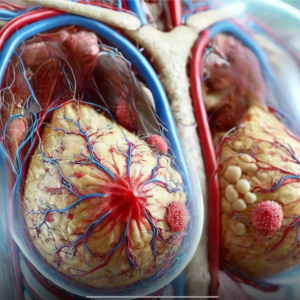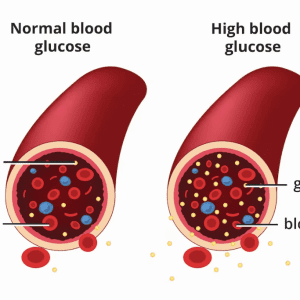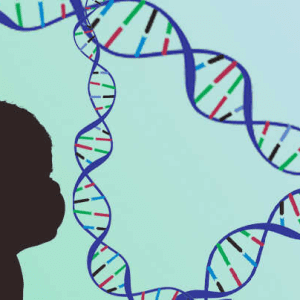High blood sugar, also known as hyperglycemia, can sneak up on you without any warning. Your body relies on blood glucose as its primary source of energy, which comes from the food you eat. Normally, insulin, a hormone produced by the pancreas, helps regulate this glucose. However, when insulin doesn’t function properly—due to insulin resistance, stress, poor diet, lack of exercise, or illness—your blood sugar levels can spike.
1. Constant Thirst (Polydipsia)

Do you find yourself drinking water constantly but still feeling thirsty? This could be a red flag. High blood sugar pulls moisture from your cells, leaving you feeling dehydrated. Your body responds by sending signals to drink more fluids.
Imagine your body as a dry sponge that just can’t soak up enough water. No matter how much you drink, that persistent thirst lingers. If this sounds familiar, it might be time to check your glucose levels.
Video :
10 Alarming Signs Your Blood Sugar Is Too High
2. Frequent Urination (Polyuria)
Does it seem like you’re running to the bathroom all the time, even at night? This is another classic sign of high blood sugar. Your kidneys work overtime to flush out the excess glucose through urine, causing frequent urination.
It’s like your body is on a mission to rid itself of the extra sugar, but it ends up leaving you tired and dehydrated. If this symptom persists, it’s essential to address the underlying cause.
3. Extreme Hunger (Polyphagia)

Are you constantly hungry, even right after eating a big meal? High blood sugar can trick your body into thinking it’s starving. When your cells can’t absorb glucose properly, your brain signals hunger.
This can lead to overeating, weight gain, and even more blood sugar spikes—a vicious cycle that’s hard to break. Pay attention if you’re always reaching for snacks without feeling satisfied.
4. Fatigue and Weakness
Feeling sluggish and drained, no matter how much rest you get? High blood sugar can sap your energy because your body isn’t efficiently converting glucose into fuel. Your cells essentially go hungry while your bloodstream remains flooded with sugar.
Think of it like trying to start a car with a clogged fuel line—the energy is there, but it can’t reach the engine. This chronic fatigue can disrupt your daily life, making even simple tasks feel exhausting.
5. Blurred Vision

Suddenly having trouble seeing clearly? High glucose levels can cause the lenses in your eyes to swell, leading to blurry vision. This can happen suddenly and may come and go, depending on your blood sugar fluctuations.
Imagine looking through a foggy window—no matter how much you try to focus, everything stays hazy. If you notice changes in your eyesight, don’t dismiss them as minor; they could be a warning sign.
6. Slow-Healing Wounds
Do small cuts and bruises take ages to heal? High blood sugar can damage blood vessels and reduce circulation, slowing down your body’s natural healing process. This not only prolongs recovery time but also increases your risk of infections.
Your body is like a road crew that can’t repair the pavement because the necessary materials are stuck in traffic. If you notice wounds that won’t heal, it’s time to take action.
7. Frequent Infections

Are you constantly dealing with infections? High blood sugar can weaken your immune system, making you more susceptible to bacterial and fungal issues.
Common infections linked to high glucose levels include:
- Urinary tract infections (UTIs)
- Gum infections and oral health problems
- Skin infections, including fungal overgrowth
If you’re frequently battling these issues, your blood sugar might be the culprit.
Video:
7 Alarming Signs Your Blood Sugar Is Too High
8. Numbness and Tingling in Hands or Feet
High blood sugar can damage nerves, leading to diabetic neuropathy. This results in numbness, tingling, or burning sensations in your extremities, especially your hands and feet.
It’s like your nerves are frayed wires sending mixed signals, causing discomfort and even pain. Addressing your blood sugar levels can help reduce the risk of long-term nerve damage.
9. Mood Swings and Irritability
Feeling irritable or anxious for no clear reason? High blood sugar can mess with your brain function, leading to mood swings, brain fog, and difficulty concentrating.
Imagine your brain trying to function on glitchy software—everything is slower, and nothing works as it should. These mood changes can also affect your relationships and overall well-being.
10. Dry Mouth and Skin

Does your mouth feel like a desert? High blood sugar pulls moisture from your body, leading to dry mouth, cracked lips, and flaky skin.
Staying hydrated can help, but the root cause—uncontrolled glucose—needs to be addressed. If you notice persistent dryness, it’s worth checking your blood sugar levels.
11. Bad Breath (Fruity or Acetone-Like Smell)
A sweet, fruity, or acetone-like odor on your breath can indicate dangerously high blood sugar. When your body can’t use glucose properly, it starts breaking down fat for energy, releasing ketones.
This can lead to a condition known as diabetic ketoacidosis (DKA), which can be life-threatening if not treated promptly. If you notice this symptom, seek medical attention immediately.
12. Swollen Feet and Legs
High blood sugar can disrupt circulation and fluid balance, leading to swelling in your feet, ankles, and legs. It’s like your body’s plumbing system getting clogged, causing fluid buildup where it shouldn’t be.
If elevating your legs and staying active don’t reduce the swelling, it’s essential to check your blood sugar to rule out complications.
How to Manage and Lower Blood Sugar Naturally

- Eat a Balanced Diet: Focus on whole grains, lean proteins, and fiber-rich vegetables.
- Exercise Regularly: Physical activity helps improve insulin sensitivity.
- Stay Hydrated: Drink plenty of water to help your kidneys flush out excess glucose.
- Monitor Blood Sugar Levels: Keep track using a glucometer or follow your doctor’s advice.
- Reduce Stress: Practice mindfulness and ensure adequate sleep, as stress can elevate glucose levels.
Conclusion
High blood sugar can present in various ways, from constant thirst to mood changes. Recognizing these signs early can help you take proactive steps to manage your health. By incorporating lifestyle changes and staying vigilant about your symptoms, you can maintain balanced glucose levels and prevent complications.
If you suspect your blood sugar is too high, consult your healthcare provider and start making adjustments today. Your body will thank you for taking control before it’s too late.


